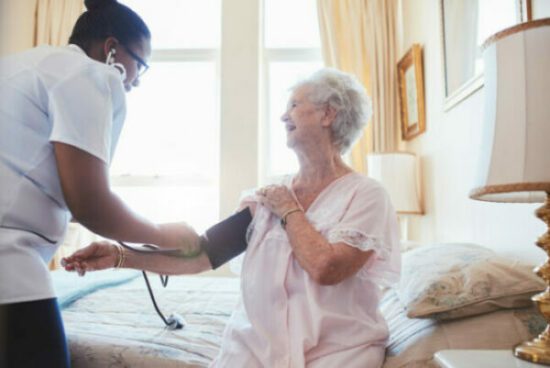Some people are more at risk than others of becoming unwell very quickly and developing a serious illness such as sepsis. This is known as ‘deterioration’ and it is important that anyone who cares for individuals who are at risk of deterioration knows how to spot the signs, especially during the current COVID-19 outbreak.
This film gives an introduction to sepsis and serious illness.
The film was produced by Wessex Academic Health Science Network, West of England Academic Health Science Network (AHSNs) and West Hampshire Clinical Commissioning Group (CCG), funded by Health Education England (HEE) and is part of a series of free videos and e-learning materials.
What tools are available?
Most tools for managing deterioration include some or all of these three elements:
- National Early Warning Score (NEWS): This simple scoring system is used by GPs, all ambulance services and most acute hospital trusts and is based on six common physiological measurements, such as blood pressure and respiratory rate.
- Soft signs: You may not be able to take the measurements required to complete a NEWS score, for instance if you work in a residential care home, or are a professional or family carer supporting someone in their own home. In these situations, you can still watch for early ‘soft signs’ to help you recognise physical deterioration and take the appropriate actions.
- Structured communication: SBARD is a tool to raise and communicate concerns in a structured way, to ensure people get the support they need quickly. Each tool includes a template based on the SBARD approach to help you do this. This short film explains more about structured communication and escalation.
Need more?
This article published by Oxford Academic looks at the feasibility of using NEWS in care homes in a clinical commissioniong group in the North East and North Coast AHSN area. A short report has also been produced by the North East Quality Observatory Service surveying the use of NEWS by GP practices within the AHSN area.
This white paper from Geoff Cooper at Wessex AHSN looks in more detail at using soft signs to identify deterioration, with case studies of recognising soft signs in practice.
The films on this page are part of an HEE e-learning package. To obtain a certificate of learning, it is recommended that you access the films as part of the full training on their e-Learning for Healthcare (e-LfH) hub.
Follow this link for more information on patient safety during COVID-19.

The NHS Innovation Accelerator (NIA) has revealed its 2025 cohort of Fellows. As the NIA celebrates a decade of helping to drive innovation in the NHS, this year’s cohort aligns with the Government’s three priorities: supporting the transition from analogue to digital, sickness to prevention and hospital to home. The 28 new Fellows will benefit [...]

A new guide aimed at helping primary care organisations and integrated care boards understand and address problematic polypharmacy has been launched by the Health Innovation Network as part of its national Polypharmacy Programme. Developed in response to a clear need identified by primary care and prescribing colleagues, this essential resource provides practical, evidence-based strategies to [...]

Across England, innovation is improving cancer services and patient outcomes. Last week the government launched an open call for evidence to inform the National Cancer Plan. Innovation has a critical role to play in supporting the delivery of any National Cancer Plan, and delivering on the government’s three shifts. In order to realise the significant [...]









